What is BSAR?
Planning a hike in Australia’s stunning wilderness? While Bush Search and Rescue (BSAR) provides invaluable assistance, being aware of potential costs associated with emergency extraction is essential. BSAR in Australia is a free service funded by the government and provided by volunteers. It is available to all hikers, regardless of their experience level or the location of their hike. There are a number of different bush search and rescue organisations in Australia, each with their own specific areas of expertise. For example, the State Emergency Service (SES) Bush Search and Rescue team is responsible for land-based search and rescue operations, while the Australian Volunteer Coast Guard is responsible for sea-based search and rescue operations.
If you need bush search and rescue assistance, you should call 000 and ask for police. The police will coordinate the search and rescue response, which may involve one or more of the organisations listed above. Bush search and rescue operations can be complex and challenging, and they can be expensive. However, the Australian government and state governments are committed to providing this essential service to all hikers. In addition to the government funding, bush search and rescue volunteers also raise money through fundraising events and donations. This money is used to cover the costs of equipment, training, and other expenses associated with search and rescue operations.
Bush search and rescue volunteers are highly trained and experienced professionals. They are skilled in navigation, search techniques, and wilderness survival. They are also equipped with the latest technology, including search aircraft, drones, and GPS devices.
If you are planning to hike in Australia, it is important to be aware of the bush search and rescue system. It’s also important you help to reduce the risk of needing search and rescue assistance. And if you do need help, you can be confident that a team of highly trained and experienced volunteers will be there to assist you.
Bush Search and Rescue in Australia: A Guide for Everyone
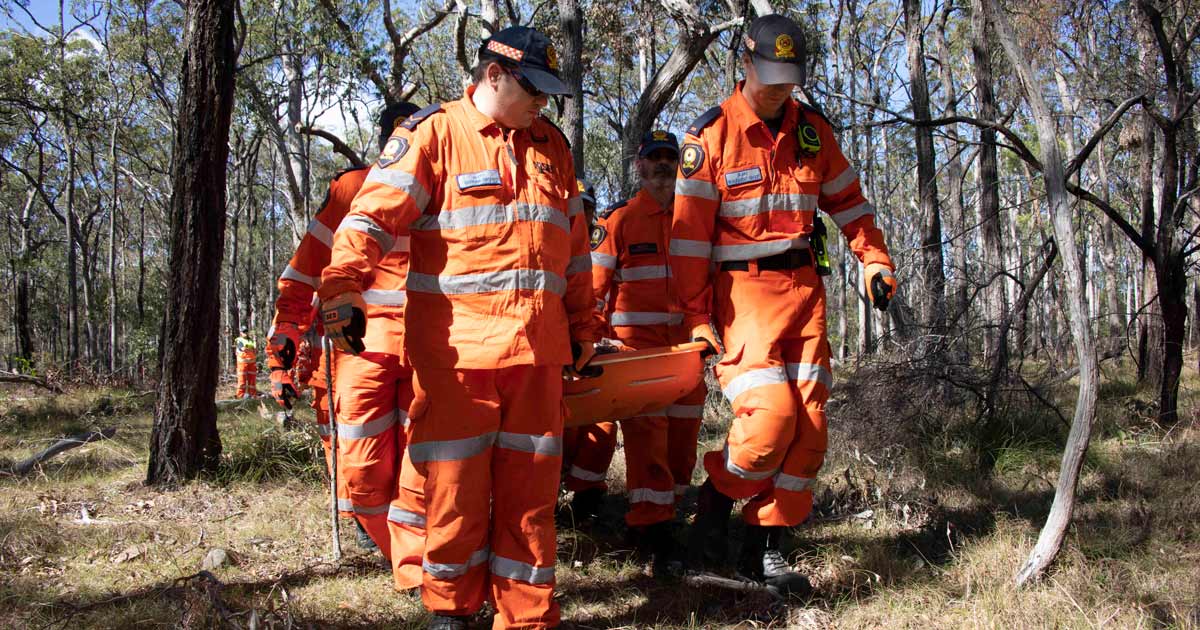
Bush search and rescue (BSAR) is a vital service in Australia, helping to save lives and protect people in the wilderness. BSAR teams are made up of highly trained and experienced volunteers who are skilled in navigation, search techniques, and wilderness survival.
Who is covered by BSAR?
BSAR is available to everyone in Australia, regardless of their nationality or residency status. This includes international travelers, tourists, and bushwalkers of all experience levels.
What does BSAR cover?
BSAR covers a wide range of search and rescue operations in bush and alpine areas, including:
- Searching for missing persons
- Rescuing injured or ill persons
- Providing assistance to persons lost or disoriented
- Responding to natural disasters and other emergencies
How much does BSAR cost?
Bush Search and Rescue (BSAR) itself is a free service to individuals in Australia. The government funds BSAR operations through a number of different sources, including the Australian Maritime Safety Authority (AMSA), the State Emergency Services (SES), the Australian Volunteer Coast Guard (AVCG), the Australian Federal Police (AFP), and the Australian Defence Force (ADF). However, it’s important to distinguish between the search and rescue operation coordinated by BSAR and the cost of medical extraction, which may involve a helicopter or ambulance. Bush search and rescue is a vital service that saves lives but it is not free to the Australian economy, and sometimes it’s not free to individuals. The average cost ‘to the economy’ of extraction via helicopter can be upwards of $5,000 per hour. Costs to individuals can escalate to $45,000 for a single helicopter extraction.
The real cost can vary significantly depending on a number of factors, including:
- The type of helicopter used
- The distance to the pickup and drop-off locations
- The weather conditions
- The urgency of the situation
- Whether or not you are a resident of that State
- Whether or not you have ambulance cover or insurance
For example, a rescue operation in a remote location or in bad weather conditions will be more expensive than a rescue operation in a populated area or in good weather conditions. In Australia, the government typically covers the cost of helicopter evacuations in medical emergencies, but not always. If you are planning to hike in a remote area or if you are concerned about the cost of a helicopter evacuation, seriously consider purchasing ambulance cover and private health insurance or adventure travel insurance that includes ambulance cover. While BSAR focuses on locating and retrieving you, the cost of medical extraction, often via helicopter, can be significant. This is where considering ambulance cover or travel insurance with medical evacuation coverage becomes crucial.
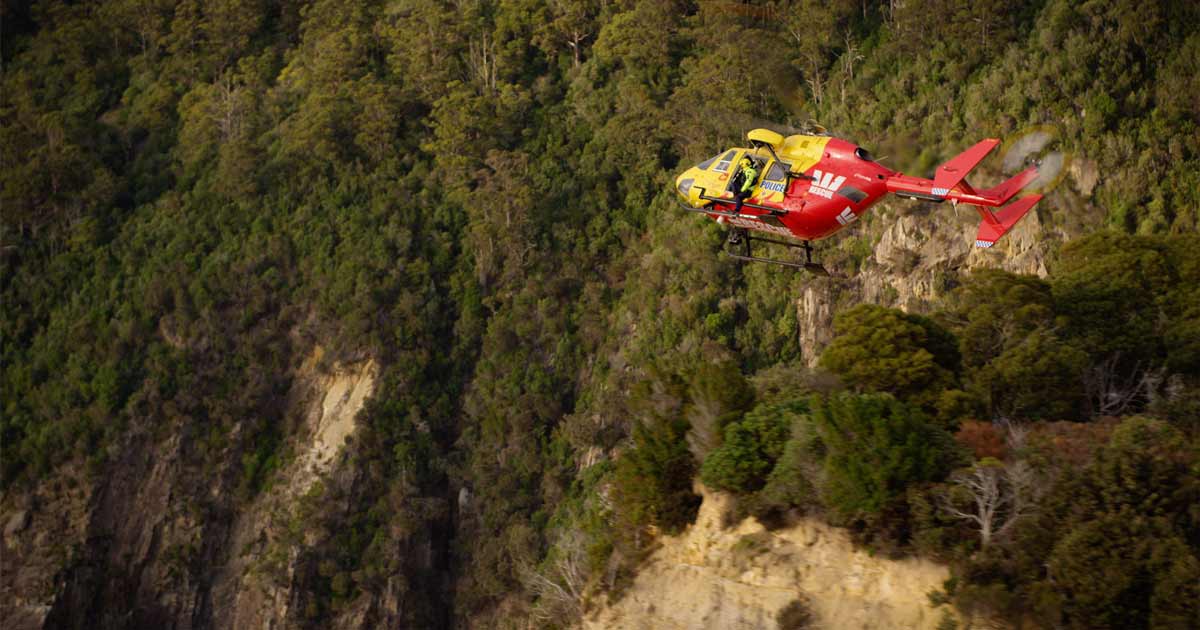
Ambulance cover and insurance
When planning a hike, especially on remote trails or if you are inexperienced, having ambulance cover is essential. In case of an accident or illness, you may need to be airlifted to a hospital. Helicopter evacuations are costly, and government assistance does not always cover these expenses. Individuals may be responsible for the cost of their helicopter evacuation in non-emergency situations, making ambulance cover a crucial financial safeguard. Even if you are an experienced hiker on a popular trail, it is still advisable to have ambulance cover. Accidents can happen to anyone, and search and rescue teams may need to assist you.
Things to Know About Ambulance Services
As ambulance cover can be complicated, I recommend you talk to your Private Health Cover or Ambulance Cover provider. It’s important to ask questions about your policy and make sure you understand what you’re actually covered for. Remember:
- Medicare does not cover ambulance services. This includes road-based ambulances, air ambulances, and helicopters.
- Some states may provide ambulance cover both within your home state and interstate, but always read the fine print.
- Costs: Medical evacuations, whether by road or air, are not cheap and can cost upwards of $5,000 an hour.
- Concession Card Holders/Pensioners: Discounts can be up to 100%, but these vary by age and location.
The Importance of Ambulance Cover When Hiking
The callout and use of an ambulance is not free-of-charge, and as mentioned above, these costs are not covered by Medicare. You should ensure you have ambulance cover when bushwalking or hiking in Australia. Some states do not have reciprocal arrangements between interstate ambulance services for the provision of ambulance services and as such you may be responsible for the cost of services and required to pay any costs in full. If you held private health insurance with ambulance cover at the time of your ambulance service, you should advise your insurer and check your coverage.
Things to consider for Ambulance Cover in Australia
Planning an interstate hike? Be aware that ambulance coverage may differ depending on the state. The Commonwealth Ombudsman recommends you ask whether your cover will include:
- Interstate travel
- Emergency situations only or non-emergency as well
- Different types of ambulance transport, for example air ambulance, state-approved private providers or other private providers
- Ambulance treatment where transportation to a hospital isn’t required
- The full fee, or whether you’ll have out-of-pocket costs.
If you have private health or ambulance cover, check the details to see what is included. For example, some insurers cover air ambulance extraction, but only if the air ambulance provider seeks approval from the policy holder first. Consider Domestic Travel Insurance (for one-off or annual trips). Ensure the policy covers medical helicopter evacuation. Read the fine print carefully as some travel insurance companies may exclude domestic medical expenses entirely.
State Ambulance Service Websites:
- Australian Capital Territory – ACT Ambulance
- New South Wales – NSW Ambulance
- Northern Territory – St John NT
- Queensland – QLD Ambulance
- South Australia – SA Ambulance
- Tasmania – TAS Ambulance
- Victoria – Ambulance Victoria
- Western Australia – St John WA
Remember: Medicare does not cover ambulance services in Australia. Obtain ambulance cover through a health insurer or your state/territory ambulance authority. Health insurers may reimburse you for all or part of your annual subscription or the costs associated with transportation. Even if BSAR locates you, ambulance transport, especially via helicopter, can be very expensive. Strongly consider purchasing ambulance cover or travel insurance with medical evacuation coverage to avoid substantial out-of-pocket costs.
What should I do if I need BSAR assistance?
If you need BSAR assistance, you should call 000 and ask for police. If your life is in eminent danger, activate your PLB. The police will coordinate the search and rescue response, which may involve one or more of the organisations listed above. It’s also important to prepare yourself to signal for help. If you ever find yourself needing help, knowing the different ways you can signal for help and choosing the most appropriate ones for the circumstances can be the difference between life and death.
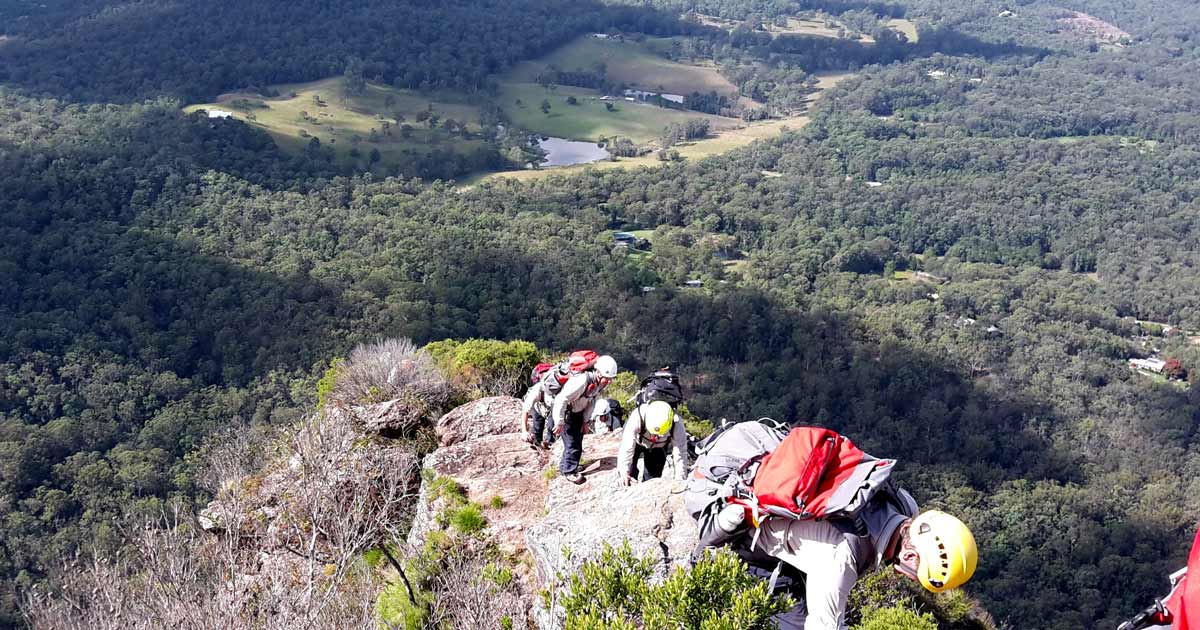
How can I stay safe in the bush?
There are a number of things you can do to stay safe in the bush and reduce the risk of needing BSAR assistance, including:
- Plan your trip carefully
- Let someone know where you are going and when you expect to be back
- Be aware of your surroundings and the potential hazards in the area
- Take breaks regularly
- Carry plenty of water and stay hydrated
- Be prepared for bad weather
- Carry a map and compass, and know how to use them
- Carry a personal locator beacon (PLB) and/or satellite communicator so you can signal for help if needed
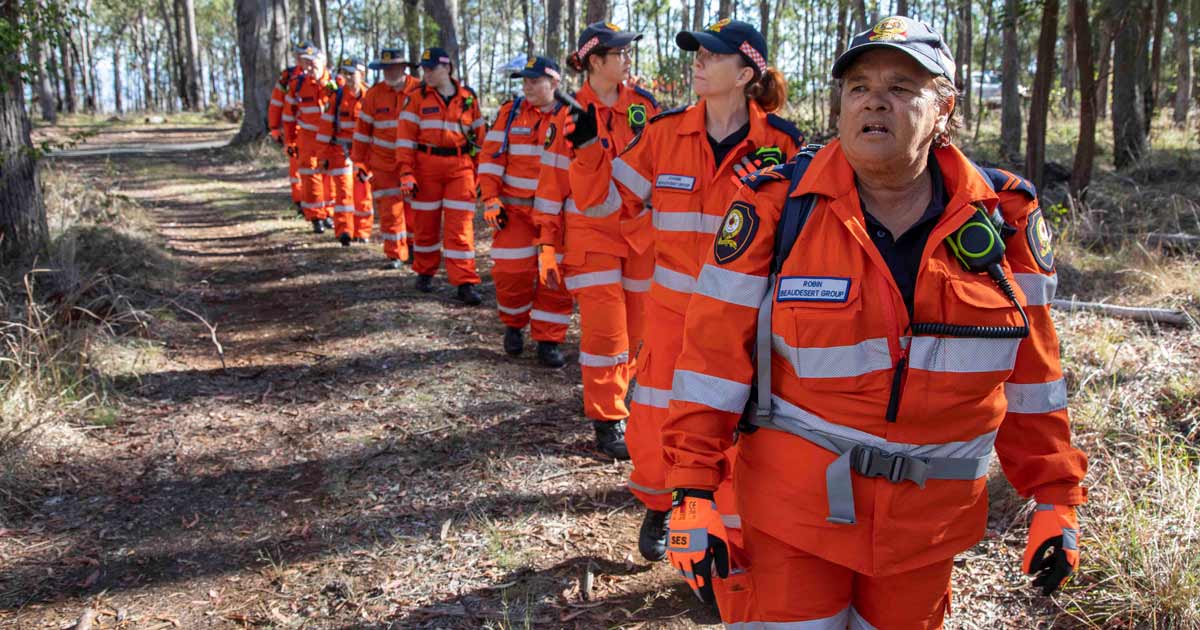
Tips for international travelers
International travelers should be aware that they may be responsible for the cost of any medical treatment they receive in Australia. This is because Medicare, the Australian government’s universal healthcare system, is only available to Australian citizens and permanent residents. International travelers can purchase private health insurance to cover the cost of medical treatment in Australia. There are a number of different private health insurers that offer policies specifically for international travelers. It is important to purchase private health insurance before you travel to Australia, as you will not be able to purchase it once you arrive in the country.
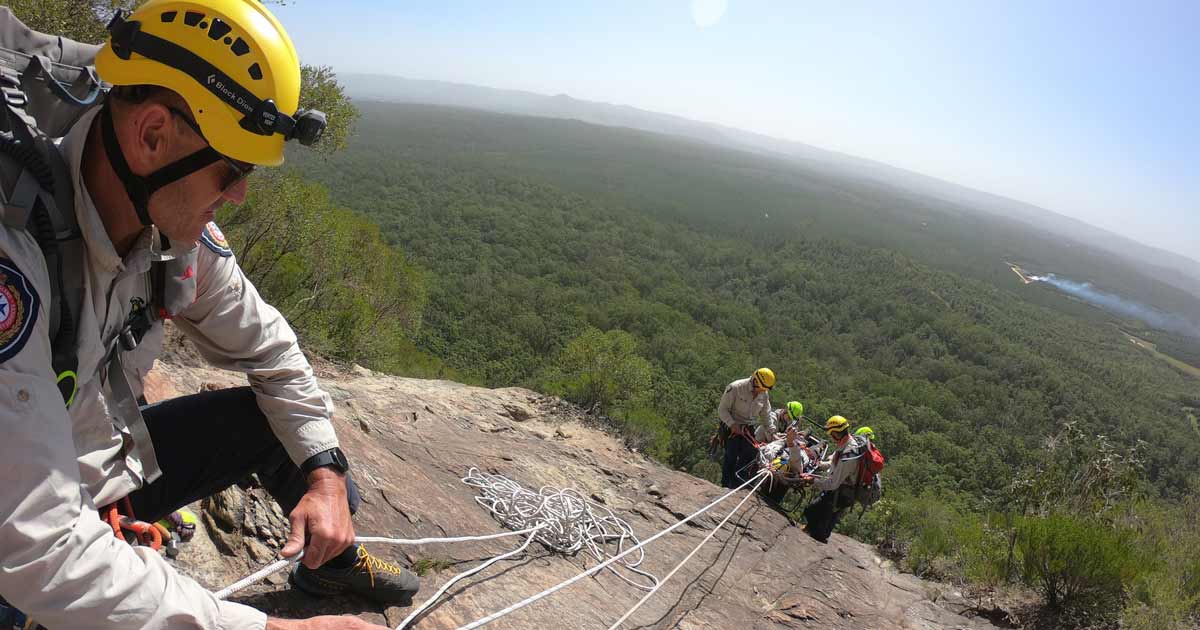
How to support BSAR
BSAR is a volunteer-based service, so your support is essential. There are a number of ways you can support BSAR, including:
- Donating to a BSAR organisation
- Volunteering with a BSAR organisation
- Spreading the word about BSAR and encouraging others to support it
Bush search and rescue is a vital service in Australia that saves lives and protects people in the wilderness. BSAR is available to everyone, regardless of their nationality or residency status. If you are planning to hike in the bush, it is important to be aware of the risks and take steps to stay safe. You should also be aware of the BSAR service and how to access it if needed. By following these tips, you can help to reduce the risk of needing BSAR assistance and support this essential service.
Hike with Confidence, Hike Safely
Bushwalking and hiking in Australia offer stunning scenery and a chance to connect with nature. By being aware of the potential costs associated with medical extraction, you can minimise risks and maximise your enjoyment. Remember, BSAR volunteers are there to help you in case of an emergency, but careful planning and ensuring you have adequate ambulance cover or insurance are essential for a safe and rewarding hike.
Images of SES volunteers and FRS firefighters training courtesy of Queensland Fire and Emergency Services.
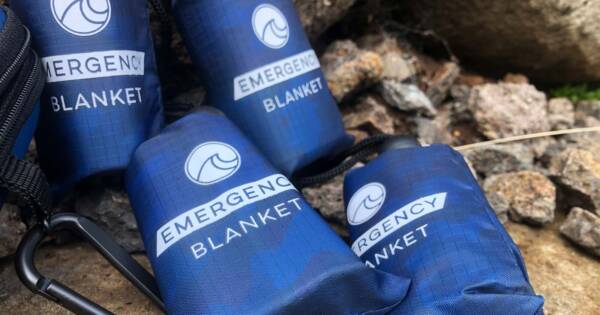
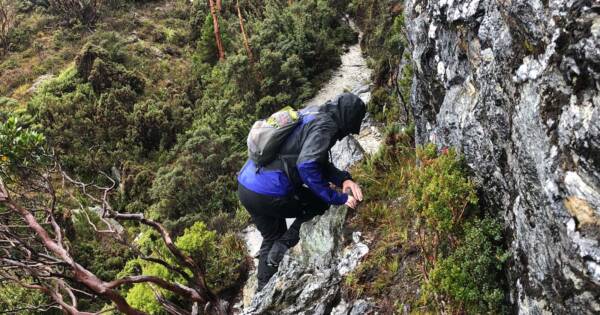
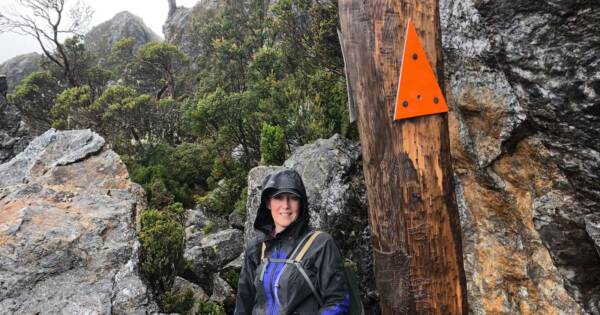


BSAR only exists in NSW – there it’s part of the SES – and VIC where they are part of Bushwalking Victoria and organisational belong to the Search and Rescue Squad of Victoria Police.
Philipp Hammes good call. I was referring to the term more so than the organisation/s. Maybe I should drop the acronym in brackets when taking about Australia.
Trail Hiking Australia in order to be fair the whole SAR setup is already convoluted within single states and territories.
Might be fun to get an overview however average hiker doesn’t need to know – having a working phone (possibly with the emergency plus app) and a PLB/Satcom in remote areas is far more important.
Philipp Hammes the article is more about the cost of search and rescue, do people need insurance and ambulance cover, what to do in an emergency and how to be better prepared, more than it is about the definition of bush search and rescue and role of different agencies.